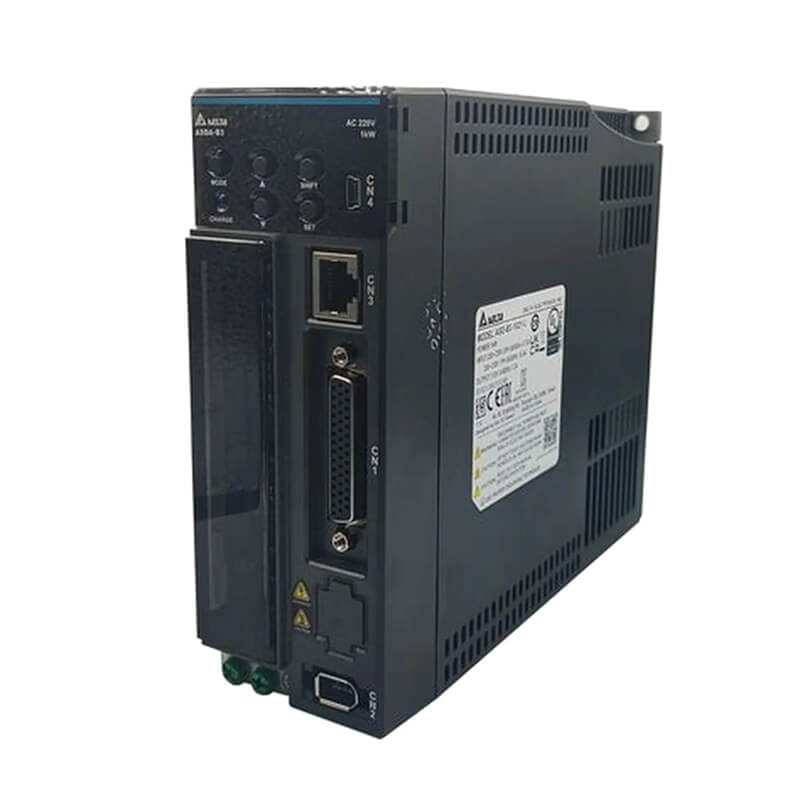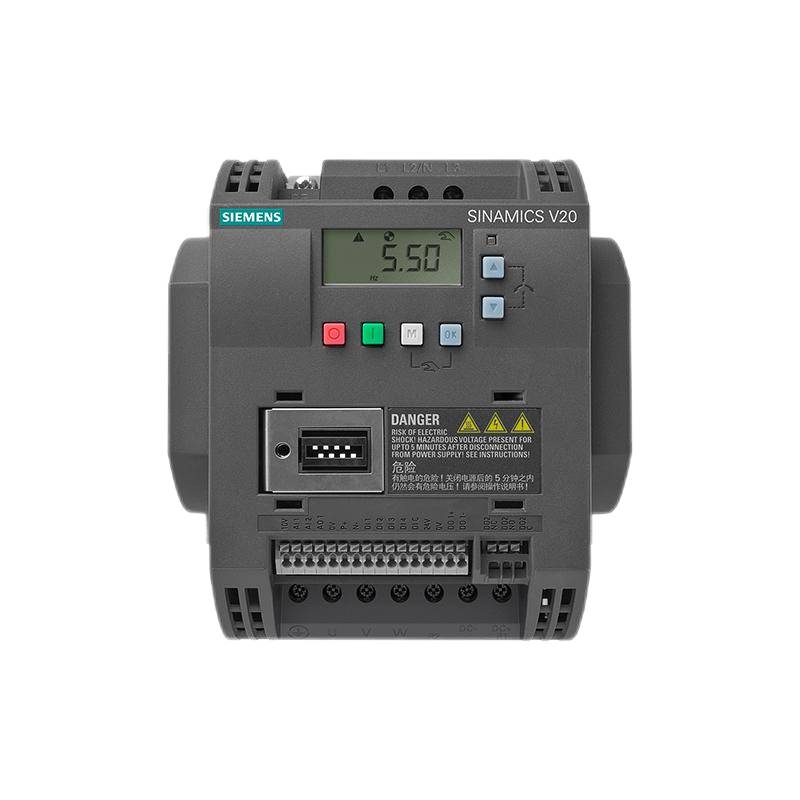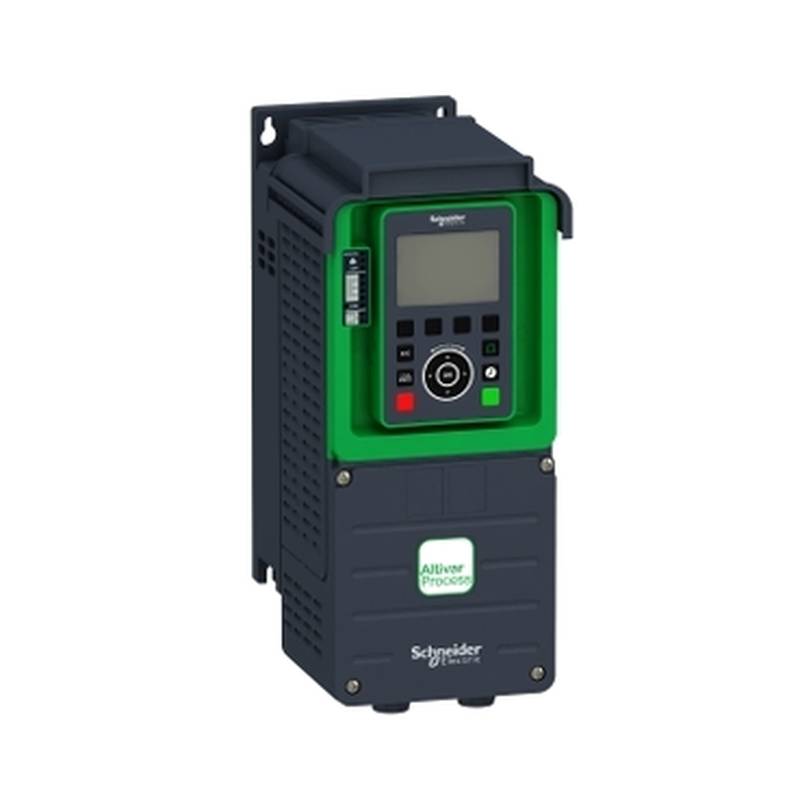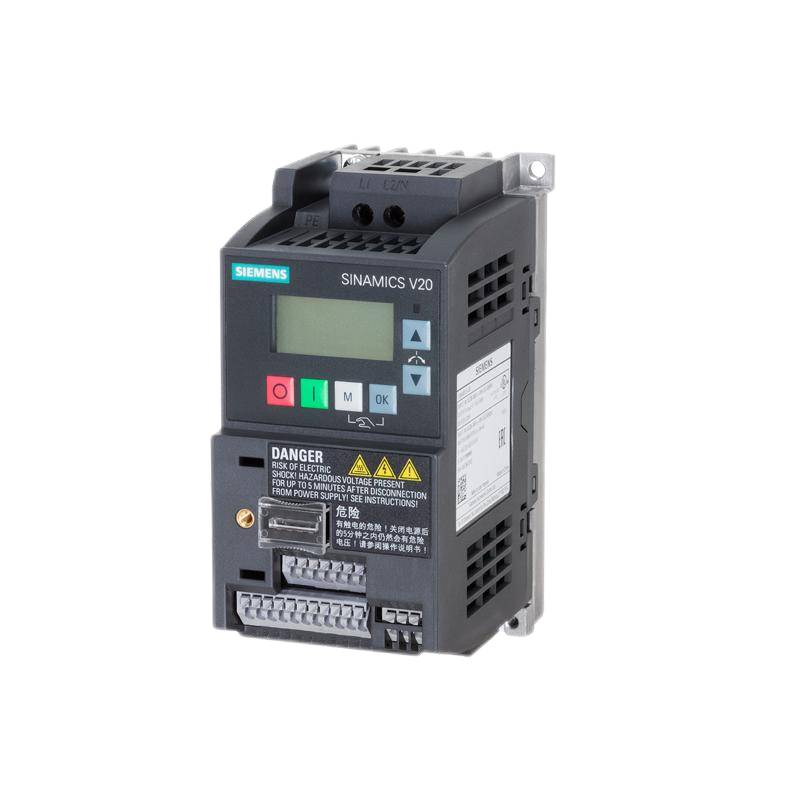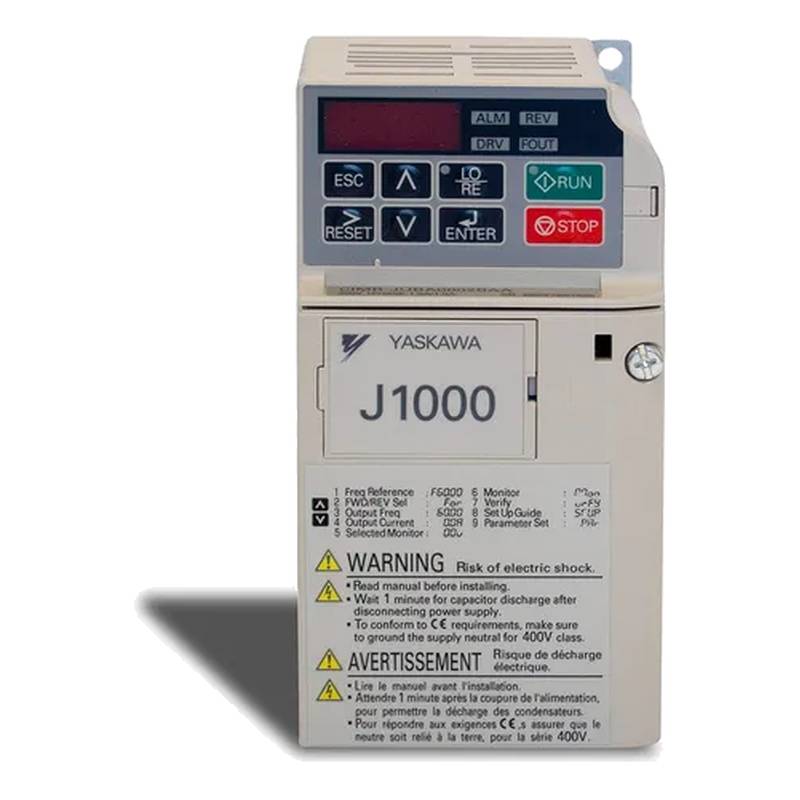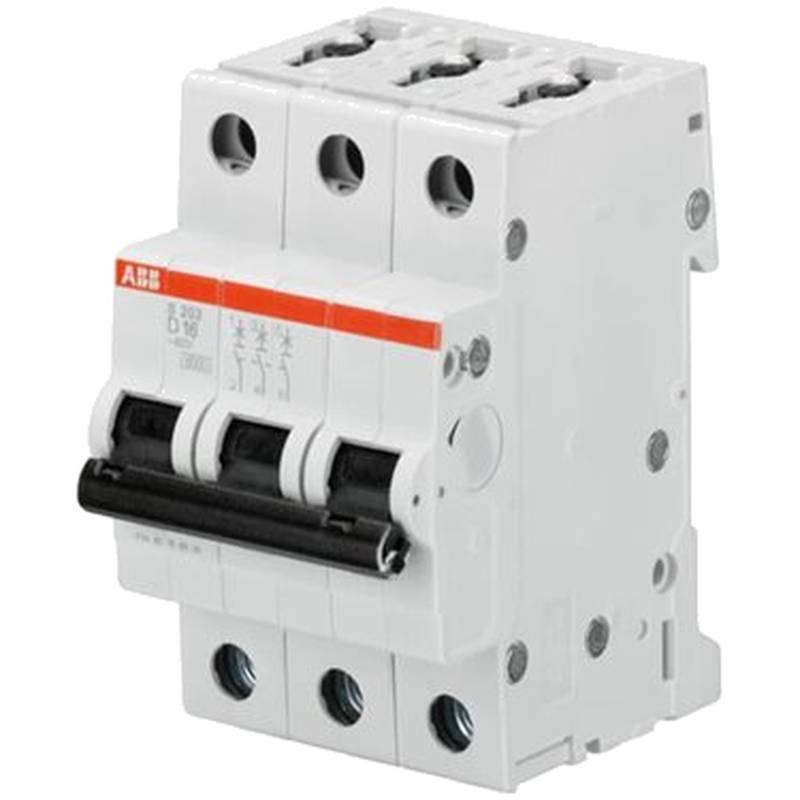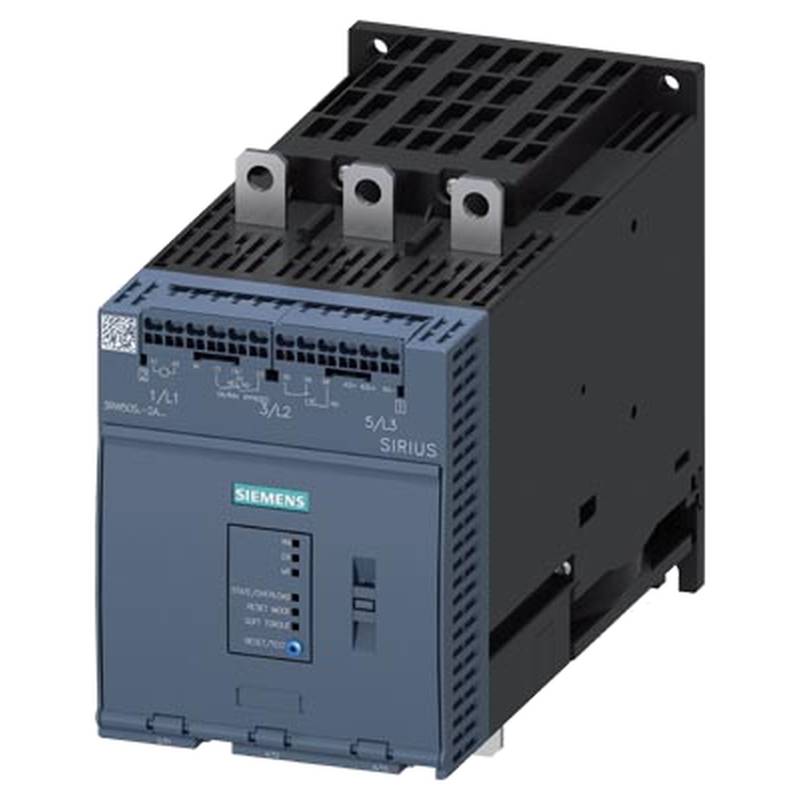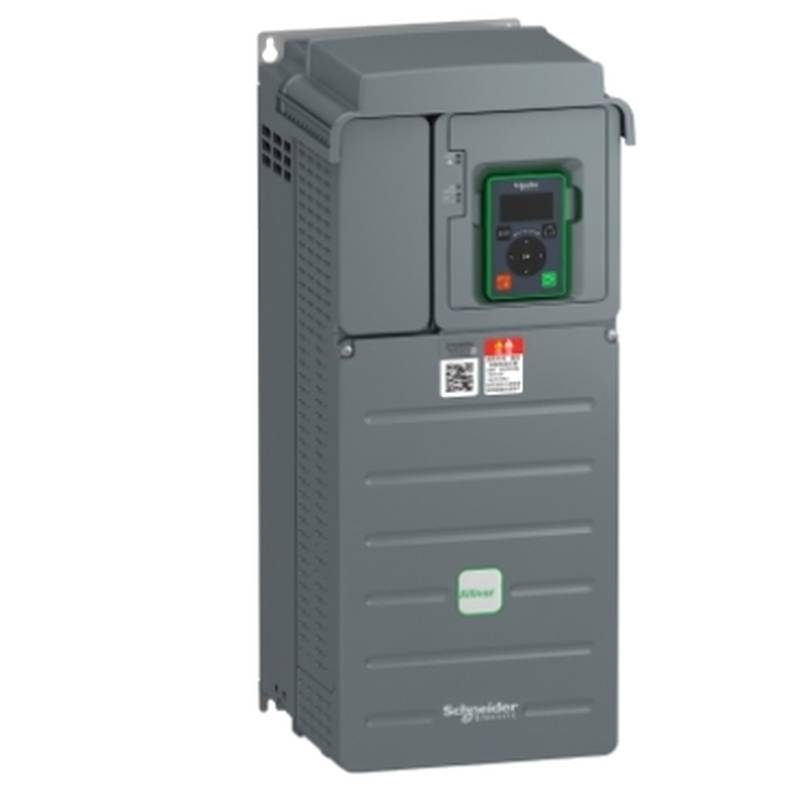
The DELTA ASD-B3-1021-F is a 1kW, 220V AC servo drive from Delta's latest ASDA-B3 series, engineered for high-performance motion control. Key advantages include a rapid 3.1 kHz bandwidth for superior responsiveness and accuracy, a 24-bit encoder for precise positioning, and compatibility with a range of Delta servo motors. The drive boasts features like built-in vibration suppression, automatic tuning capabilities, and optional communication protocols such as EtherCAT and CANopen, making it a versatile solution for demanding industrial automation tasks.
Product Specifications
| Feature | Specification |
| :----------------------- | :--------------------------------------------- |
| Model | DELTA ASD-B3-1021-F |
| Power | 1 kW |
| Input Voltage | 1-Phase/3-Phase 220 VAC |
| Output Current | 7.3 Arms |
| Bandwidth | 3.1 kHz |
| Encoder Resolution | 24-bit |
| Motor Support | Up to 6000 RPM, compatible with B3, B2, A3, A2 motors |
| Control Modes | Pulse, Analog, Speed, Position, PR Mode |
| Communication Interfaces | RS485, E-Cam, CANopen, EtherCAT, DMCNET (optional) |
| Key Features | Closed-loop control, Vibration suppression, Auto-tuning, DC Bus Sharing |
| Operating Temperature | 0°C to 40°C |
| Storage Temperature | -20°C to +65°C |
| Humidity | 0% to 90% (non-condensing) |
| Protection | Overcurrent, Overvoltage, Overheat, Encoder error, etc. |
Core Features & Market Positioning
The DELTA ASD-B3-1021-F distinguishes itself through its advanced control algorithms and enhanced hardware, offering a significant leap in performance over previous Delta generations, such as the ASDA-B2 series. Its market positioning is that of a high-performance, yet accessible, servo drive solution designed to meet the stringent demands of modern automation. The integration of a 3.1 kHz bandwidth allows for exceptionally fast response times and precise control, crucial for applications requiring rapid acceleration and deceleration with minimal settling time. The 24-bit encoder resolution provides unparalleled accuracy in positioning, ensuring that critical tasks are executed with sub-micron precision. Furthermore, the drive's compatibility with a broad spectrum of Delta servo motors, including older series, offers a significant advantage for upgrades and system expansions, minimizing obsolescence concerns. The inclusion of features like built-in vibration suppression and an automatic tuning function simplifies setup and optimization, making it a competitive choice for both system integrators and end-users seeking robust and efficient motion control.
Key Application Scenarios
The versatility and precision of the DELTA ASD-B3-1021-F servo drive make it suitable for a wide array of industrial applications. Its high-speed response and accurate positioning capabilities are invaluable in:
CNC Machining: Enabling high-precision toolpath execution for intricate part manufacturing. Robotics: Facilitating smooth, repeatable movements for industrial robots in assembly, pick-and-place, and welding operations. Packaging Machinery: Ensuring precise timing and positioning for high-speed packaging and filling processes. Printing and Labeling: Delivering accurate registration and consistent output for high-throughput printing and labeling systems. Semiconductor Manufacturing: Providing the fine control necessary for delicate wafer handling and assembly. Textile Machinery: Allowing for precise control of fabric movement and machine operations in advanced weaving and knitting. Medical Equipment: Offering the reliability and precision required for sophisticated diagnostic and therapeutic devices. Automated Warehousing: Driving automated guided vehicles (AGVs) and robotic arms for efficient material handling.
The drive's ability to operate in various modes, including pulse train and analog control, along with support for advanced communication protocols like EtherCAT, allows for seamless integration into diverse automation architectures.
Practical System Integration Guidance
Integrating the DELTA ASD-B3-1021-F into an industrial system requires careful attention to wiring, configuration, and tuning. Shielded cables are essential for both power and encoder signals to minimize electromagnetic interference (EMI), especially in environments with high electrical noise. The drive's main circuit power input (RST) requires a stable 220 VAC supply, which can be single-phase or three-phase. For encoder feedback, the appropriate connector (CN2) must be used, ensuring correct pinout to avoid damage to the encoder.
Commissioning often begins with the auto-tuning function, which analyzes motor inertia and adjusts control parameters for optimal performance without manual intervention. For systems requiring advanced motion planning, the Programmable Path (PR) mode, supporting up to 99 paths, can be configured using Delta's ASDASoft software or via communication protocols. When implementing high-speed communication, such as EtherCAT, a structured network topology with minimal cable length between devices is recommended to reduce latency and improve data integrity. It is critical to ensure proper grounding of the servo drive and motor to a class-3 ground to prevent electrical shock and ensure operational safety.
Operation and Risk Mitigation
Safe operation of the DELTA ASD-B3-1021-F servo drive hinges on adhering to installation guidelines and understanding potential fault conditions. The drive should be installed in a well-ventilated control cabinet, with ambient operating temperatures maintained between 0°C and 40°C. It's crucial to avoid environments with excessive dust, moisture, corrosive gases, or extreme temperatures, as these can lead to premature failure.
The ASDA-B3 series includes comprehensive protection functions, such as overcurrent, overvoltage, overheat, and encoder error detection, which help prevent damage during abnormal operation. Common troubleshooting involves identifying alarm codes displayed on the drive's segment display. For instance, AL007 signifies excessive deviation between command and feedback speed, often requiring parameter adjustment or investigation of mechanical binding. AL036 indicates an encoder alarm, which may necessitate checking encoder connections or, in severe cases, replacing the encoder or motor. Always refer to the official Delta ASDA-B3 User Manual for a complete list of alarm codes and detailed corrective actions. The built-in brake is for clamping and not for emergency stopping; therefore, an independent safety device must be incorporated for machine safety.
Scalability & Long-Term Value
The DELTA ASD-B3-1021-F offers considerable scalability and long-term value due to its design philosophy and compatibility features. Its position as the newest generation servo system from Delta signifies ongoing support and development. The drive's compatibility with older Delta servo motors (B2, A3, A2 series) provides a clear upgrade path for existing installations, allowing for performance enhancements without a complete system overhaul. This backward compatibility is a key factor in reducing the total cost of ownership and extending the operational life of integrated machinery.
Furthermore, the ASDA-B3 series supports advanced communication protocols like EtherCAT, enabling integration with sophisticated IIoT (Industrial Internet of Things) platforms and digital manufacturing environments. This allows for remote monitoring, diagnostics, and data analysis, contributing to predictive maintenance strategies and overall operational efficiency. The availability of free CAD downloads and comprehensive technical documentation from providers like MISUMI further enhances its long-term value proposition by simplifying design and integration processes.
Frequently Asked Questions (FAQs)
1. What are the primary advantages of the DELTA ASD-B3-1021-F over previous Delta servo drives?
The DELTA ASD-B3-1021-F offers a significantly improved 3.1 kHz bandwidth, enhancing response speed and accuracy. It features a higher resolution 24-bit encoder for precise positioning and boasts a more compact design than its predecessors. The new generation also includes enhanced auto-tuning and vibration suppression for easier setup and more stable operation.
2. Can I use the DELTA ASD-B3-1021-F with older Delta servo motors like the ASDA-B2 series?
Yes, the ASDA-B3 series drives are designed to be compatible with ASDA-B2, ASDA-A3, and ASDA-A2 series motors. This backward compatibility ensures a smooth upgrade path for existing systems, allowing users to leverage their current motor inventory while benefiting from the advanced features of the new drive.
3. What are the typical application areas for the DELTA ASD-B3-1021-F?
This servo drive is ideal for high-precision and high-speed applications such as CNC machines, robotics, automated packaging, and semiconductor manufacturing equipment. Its versatility also makes it suitable for printing, textile, and medical device applications where precise motion control is critical.
4. How do I perform initial setup and tuning with the DELTA ASD-B3-1021-F?
The drive features an automatic tuning function that simplifies the setup process by optimizing parameters based on motor characteristics. Users can also utilize the ASDASoft software for configuration, parameter adjustments, and detailed tuning, including manual gain adjustments for fine-tuning performance.
5. What communication protocols are supported by the DELTA ASD-B3-1021-F?
The drive supports various communication interfaces, including RS485, CANopen, DMCNET, and EtherCAT. This wide range of options allows for flexible integration into different industrial networks and automation systems, enabling advanced control and monitoring capabilities.
6. What are the power and voltage requirements for the DELTA ASD-B3-1021-F?
The DELTA ASD-B3-1021-F operates with a 1 kW power rating and requires a 220 VAC input voltage, which can be supplied from either a single-phase or three-phase source. It's essential to ensure the power supply meets these specifications for optimal and safe operation.
7. How does the high bandwidth of the DELTA ASD-B3-1021-F benefit machine performance?
A 3.1 kHz bandwidth allows the servo drive to react much faster to command signals and feedback, resulting in reduced settling times and higher positioning accuracy. This improved dynamic performance is crucial for applications involving rapid acceleration/deceleration cycles or precise tracking of complex trajectories.
8. What are common troubleshooting steps for alarm codes on the DELTA ASD-B3-1021-F?
Common alarms include AL007 (Excessive speed deviation) and AL036 (Encoder alarm). For AL007, check for mechanical issues or adjust speed loop gain. For AL036, verify encoder connections or consider encoder replacement. Always consult the user manual for specific alarm code explanations and reset procedures.
9. Is the DELTA ASD-B3-1021-F suitable for multi-axis control systems?
Yes, the ASDA-B3 series, particularly when using high-speed communication protocols like EtherCAT, is well-suited for multi-axis control. EtherCAT allows for efficient networking of multiple drives, reducing wiring complexity and enabling synchronized motion across several axes.
10. What environmental conditions should be considered for installing the DELTA ASD-B3-1021-F?
The drive should be installed indoors in a clean, dry environment with ambient temperatures between 0°C and 40°C and humidity below 90% (non-condensing). It's important to avoid excessive dust, oil mist, corrosive gases, and direct sunlight to ensure longevity and reliable operation.














